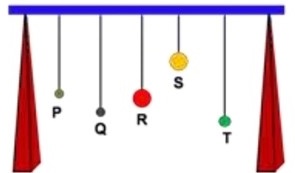
The Effect of Predict-Observe-Explain (POE) Strategy on Students’ Conceptual Mastery and Critical Thinking in Learning Vibration and Wave
Abstract
Full Text:
DOWNLOAD PDFReferences
Anderson, L. W., Krathwohl, D. R., Airasian, P. W., Cruikshank, K. A., Mayer, R. E., Pintrich, P. R., ... & Wittrock, M. C. (2001). A Taxonomy For Learning, Teaching, and Assessing: A Revision Of Bloom’s Taxonomy of Educational Objectives, Abridged Edition. White Plains, NY: Longman.
Cholisoh, L., S. Fatimah, & F. Yuniasih. (2015). Critical Thinking Skills in Integrated Science Learning Viewed from Learning Motivation. Jurnal Pendidikan Fisika Indonesia, 11(2), 134-141.
Clark, Donald. (2015, January 12). Bloom's Taxonomy of Learning Domains: The Cognitive Domain. Retrieved on November 9, 2016, from http://www.nwlink.com/~donclark/hrd/bloom.html
Fraenkel, J. R., Wallen, N. E., & Hyun, H. H. (2011). How to Design and Evaluate Research in Education. New York: Mc. Graw Hill
Hake, R.R. (1999). Analyzing Change/Gain Scores. Dept. of Physics, Indiana University 24245 Hatteras Street, Woodland Hills, CA, 91367 USA.
Hamalik, O. 2009. Psikologi Belajar dan Mengajar (6th edition). Bandung: PT Grasindo.
Hilario, J.S. (2015). The Use of Predict-Observe-Explain-Explore (POEE) as a New Teaching Strategy in General Chemistry-Laboratory. International Journal of Education and Research, 2(3), 38-39.
Indonesian Ministry of Education and Culture. (2015). Republic of Indonesia Government Regulation No. 19 Year 2005 About National Standard of Education. Jakarta: Kemendikbud.
Johnson, E. B. (2010). Menjadikan Kegiatan Belajar-Mengajar Mengasyikkan dan Bermakna (Indonesian Translation from the original Contextual Teaching & Learning: What It Is and Why It’s Hero To Stay). Bandung: Penerbit Kaifa.
Kala, N., Yaman, F. & Ayas, A. (2012). The Effectiveness of Predict–Observe–Explain Technique in Probing Students’ Understanding about Acid-Base Chemistry: A Case for The Concepts of pH, pOH, And Strength. International Journal of Science and Mathematics Education, 11(1), 570-571.
Kibirige, I., Osodo, J. & Tlala, K.M. (2014). The Effect of Predict-Observe-Explain Strategy on Learners’ Misconceptions about Dissolved Salts. Mediterranean Journal of Social Sciences, 5(4), 301-304.
Nana, Sajidan, Akhyar, M., & Rochsantiningsih, D. (2014). The Development Of Predict, Observe, Explain, Elaborate, Write, And Evaluate (POE2WE) Learning Model In Physics Learning At Senior Secondary School. Journal of Education and Practice, 5(19), 57-58.
Paul, R.W., & Elder, L. (2009). The Miniature Guide to Critical Thinking Concepts & Tools (6th Edition). CA: The Foundation for Critical Thinking.
Pratama (2012) Hubungan antara Kecenderungan Berpikir Kritis Dengan Indeks Prestasi Kumulatif (IPK) Mahasiswa Prodi Dokter FK UNDIP. Report of research. Universitas Diponegoro, Semarang.
Slavin (1997). Educational Psychology Theory and Practice, Fifth Edition. Boston: Allin and Bacon.
Ulfah, Q.N., Asim & Parno (2014). Penerapan Model Pembelajaran Poe (Predict-Observe-Explain) Untuk Meningkatkan Kemampuan Berpikir Kritis dan Motivasi Belajar Siswa Kelas X-Mia 4 Sma N 6 Malang dalam Materi Fisika Kalor. Universitas Negeri Malang, Malang.
Wardani, T. B., & Winarno, N. (2017). Using Inquiry-based Laboratory Activities in Lights and Optics Topic to Improve Students' Understanding About Nature of Science (NOS). Journal of Science Learning, 1(1), 28-35.
Wardatun, H., Dwiastuti, S. & Karyanto, Puguh (2015). The Influence of Predict Observe Explain Write Towards of Critical Thinking Skills and in X Degree SMA N 2 Sukoharjo in academic year on 2012/2013. Universitas Sebelas Maret, Surakarta.
White, R., & Gunstone, R. (2014). Prediction-Observation-Explanation. Probing Understanding, 4. Routledge, 2014.
Wijaya, C. (2007). Pendidikan Re-medial Sarana Pengembangan Mutu Sumber Daya Manusia. Bandung: Remaja Rosdakarya.
Zulaeha, I.W., Darmadi & K. Werdhiana (2014). Pengaruh Model Pembelajaran Predict, Observe And Explain terhadap Keterampilan Proses Sains Siswa Kelas X Sma Negeri 1 Balaesang. Universitas Tadulako, Palu.
DOI: https://doi.org/10.17509/jsl.v2i1.12879
Refbacks
- There are currently no refbacks.
Copyright (c) 2018 Journal of Science Learning
License URL: https://creativecommons.org/licenses/by-sa/4.0/


Jl. Dr. Setiabudhi 229 Bandung 40154, West Java, Indonesia











